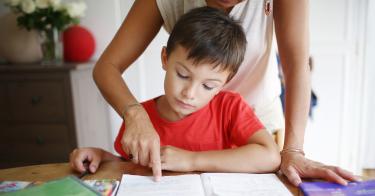Sometimes it takes a natural disaster to catalyze meaningful education change. That’s what happened in New Orleans, where one of the nation’s most vibrant school choice districts has arisen from the wreckage of Hurricane Katrina.
It’s too early to predict how the “accidental homeschooling” wrought by the coronavirus pandemic will affect America’s K-12 landscape in the long run. Huge numbers of parents may realize they can, in fact, homeschool—producing a significant, permanent uptick.
Or all but a small number may find it sufficiently difficult—or not the right fit for their family and normal (pre-pandemic) working arrangements—and send their kids packing as soon as schools reopen.
Most likely, the long-term outcome will be somewhere in between: a non-trivial, permanent increase in homeschooling and online learning, but not so great as to totally disrupt our system of education delivery.
According to the most recent (2016) federal data available, approximately 1.69 million children were already being homeschooled before the virus shuttered nearly all public (and many private) schools. That’s 3.3 percent of the school-age population.
>>>A collection of education resources for schools and families
Another 300,000 students are estimated to be enrolled in online/virtual schools full-time. And of the nearly 22,000 students using education savings accounts in Arizona, Florida, Mississippi, Tennessee and North Carolina, about one-third have totally customized their education at home, using combinations of private tutors, online learning, and tailored curricular resources without setting foot in brick-and-mortar schools.
In all, then, we can estimate that nearly 2 million children across America were doing a combination of schooling at home and/or full-time virtual learning before the coronavirus pandemic closed schools for millions of children.
Will that number significantly increase after the coronavirus emergency ends?
At first glance, the massive accidental homeschooling now underway may look like a potential disruption of the traditional K-12 education sector.
Michael Horn, distinguished fellow at the Clayton Christensen Institute for Disruptive Innovation, writes that “all of a sudden, the competition for online learning isn’t live, in-person classes. Those classes are canceled. Now, the alternative is nothing at all.”
Typically, when there is a flood of new entrants into a market (in this case, families thrown into homeschooling out of necessity), one would expect that enabling technologies (such as online learning) would be able to gain a good share of the business—either as a facilitating service or as a viable or even more desirable alternative.
Yet Horn isn’t so “sure we’re in the typical circumstance where the logic and usual patterns of disruption hold,” particularly if students experience “poorly constructed, hastily built online courses by faculty.”
These reservations are especially applicable to higher education, where professors are now being asked to translate in-class lesson plans—including laboratory exercises—into online instructional experiences.
Freeing up existing education dollars to be more nimble generally and to follow families to learning options of their choice is good policy anytime, and perhaps a critical policy during a global pandemic.
But it’s much too early to tell what, if any, the lasting impact of the coronavirus pandemic will be on the way families think about education delivery. It should, however, change the way government officials think about education policy.
Students who were already learning online, homeschooling, or accessing private tutors are likely experiencing less disruption in their education. Freeing up existing education dollars to be more nimble generally and to follow families to learning options of their choice is good policy anytime, and perhaps critical policy during a pandemic.
To that end, states should provide emergency educations savings accounts (ESAs) to families for the remainder of the academic year. States should deposit into these parent-controlled accounts 90 percent of what the states would have spent on their children in the public school system from the time public classrooms were shut through the end of the school year.
Families should then be allowed to use their ESA to pay for private tutors, online tutors, special education services and therapists, online courses and curricula.
The five states that already have ESA options should expand student eligibility to all students in the states, reflecting the fact that the coronavirus pandemic requires all families to engage in social distancing.
At the same time, while maintaining the requirement that private tutors hold bachelor’s degrees, states should relax the requirement that they also have state-approved teaching licenses. This emergency reform could significantly boost the supply of available private tutors, increasing the number of instructors students can pay with their ESA and learn from online.
The next few months will require immediate policy changes that enable families to engage in necessary social distancing while still educating their children. These emergency steps can help make that possible.
And it will be interesting to follow what changes if any, stick in the long-term, and whether “accidental” homeschooling will settle into a permanent way of life.
This piece originally appeared in Fox News



